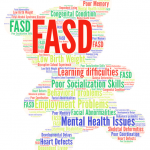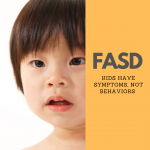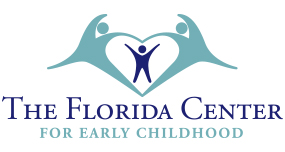Fetal Alcohol Spectrum Disorders Clinic
The Florida Center for Early Childhood is home to the state’s first and only Fetal Alcohol Spectrum Disorders (FASD) Clinic. The clinic is available to diagnose, make recommendations, provide necessary interventions and educate (families and communities) in order to reduce/prevent negative outcomes.
Many individuals prenatally exposed to alcohol go through life not knowing the underlying cause of their lifelong challenges. Left untreated and unsupported, individuals often end up institutionalized or in prison. Diagnosing and treating the effects of prenatal alcohol exposure is the key to preventing negative outcomes, which is the primary goal of this program. These efforts occur by evaluating children, educating caregivers, and offering ongoing support and consultation as needed.
Visit our Training Institute calendar to find FASD trainings for educators, caregivers, and parents.
For more information, contact our FASD clinic at (941) 371-8820, ext. 1093. Our fax number is (941) 296-8486.

FASD Clinic
 The FASD clinic at The Florida Center assesses individuals and provides appropriate intervention services. The diagnostic evaluation consists of a series of tests to address specific, identified issues, behaviors, and/or disorders. Our of FASD evaluation experts consists of a licensed neuropsychologist, a licensed occupational therapist, a licensed speech/language pathologist, and a mental health clinician along with the FASD Clinic Director.
The FASD clinic at The Florida Center assesses individuals and provides appropriate intervention services. The diagnostic evaluation consists of a series of tests to address specific, identified issues, behaviors, and/or disorders. Our of FASD evaluation experts consists of a licensed neuropsychologist, a licensed occupational therapist, a licensed speech/language pathologist, and a mental health clinician along with the FASD Clinic Director.
FASD Evaluation Process
When evaluating its clients, The Florida Center uses a comprehensive, interdisciplinary evaluation process developed by the University of Washington FAS Diagnostic and Prevention Network.
The process is an all-day event, as each FASD team member individually evaluates the client. After a thorough evaluation, the team convenes and presents their individual findings.
Who qualifies for the program?
- Must be a Florida resident
- Confirmed Alcohol exposure or strong indicators of in utero alcohol exposure
- All ages (0 to adult)
How long are the appointments?
Depending on the age of the client, the clinic could last anywhere from 4 to 6 hours. The client may also be required to meet for an additional appointment with the neuropsychologist for IQ testing if needed.
What is the process to make an appointment?
Contact our FASD clinic at 941.371.8820 Ext. 1093 or email fasd@thefloridacenter.org.
Our fax number is (941) 296-8486.
After a short phone interview, you will be sent forms to complete and return to The Florida Center. Once your intake packet is received, a staff person will schedule an appointment.
Click to read What to expect on the day of clinic?
FASD Prevention

Are you interested in receiving informational brochures to put in your waiting room to spread the word about the impact of drinking alcohol during pregnancy? If so, contact us!
From the moment a woman becomes pregnant, her choices regarding alcohol consumption affect her unborn baby. Many say one glass of wine a day is healthy, but research shows even the slightest amount of alcohol can be dangerous during pregnancy. In fact, any alcohol, regardless of type, amount, or frequency, can lead to Fetal Alcohol Spectrum Disorder (FASD).
The effects of FASD can range from a few treatable issues with learning and behavior to lifelong physical, behavioral, mental and/or learning disabilities.
Preventing FASD
When a pregnant woman drinks alcohol, so does her developing baby. Any amount of alcohol, even if it’s just one glass of wine, passes through the placenta from the mother to the growing baby.
Developing babies lack the ability to process, or metabolize, alcohol through the liver or other organs. They absorb all of the alcohol and have the same blood alcohol concentration as the mother, which can result in an incurable, lifelong disability for the baby.
Alcohol is toxic to a growing baby and can interfere with healthy development causing brain damage and other birth defects. There is no known safe amount of alcohol to drink while pregnant, no safe time during pregnancy to drink and no safe kind of alcohol, according to the CDC, as well as the U.S. Surgeon General.
Several disorders can occur if a baby is exposed to alcohol in utero. These disorders fall under the FASD umbrella and include Fetal Alcohol Syndrome (FAS), Fetal Alcohol Effects (FAE), Partial Fetal Alcohol Syndrome (PFAS), Alcohol-Related Neurodevelopmental Disorder (ARND).
Alcohol-related birth defects can cause children to experience:
- low birth weight
- problems eating, sleeping, seeing, and hearing
- trouble paying attention and learning in school
- require special attention from teachers
- trouble getting along with others and controlling their behavior
FASD Services & Treatment
 There is no cure for FASD, however, treatment can help a child with the diagnosis developmentally stay on track and prevent secondary disabilities from occurring in the future.
There is no cure for FASD, however, treatment can help a child with the diagnosis developmentally stay on track and prevent secondary disabilities from occurring in the future.
The Florida Center’s expertly-trained staff use Families Moving Forward (FMF), an evidence-based practice that provides parents with strategies to reduce child behavioral problems and promote family unity.
Additional services for children (0-9) are also provided by The Florida Center’s team of occupational and mental health therapists. Therapy sessions have been proven to improve cognitive behavior, memory, communication, and socialization.
Learn more about our Developmental Therapy
Learn more about our Infant and Early Childhood Mental Health Therapy
FASD Information & Support
 Parenting is the toughest and most fulfilling job in the world. Parenting children with special needs, like FASD, brings its own set of challenges.
Parenting is the toughest and most fulfilling job in the world. Parenting children with special needs, like FASD, brings its own set of challenges.
The Florida Center also offers virtual support groups for caregivers of FASD children. This group allows caregivers to connect and share stories with others raising FASD children.
Click here to join our FASD Facebook Support Group
Our weekly support group meets virtually every Wednesday. For more information, contact Crissa Harman at (941) 371-8820, ext. 1093.
Many parents of children with an FASD are adoptive or foster parents. Some knew about FASD when they welcomed their children into their family, while others did not. Information is the key to success in raising children with an FASD.
Learning about FASD can help parents understand how their child is affected, which parenting strategies work best, and how to get services and support. For people who want to adopt or foster a child with FASD, knowing the facts can help them make an informed decision.
Support for Biological Mothers
Many biological mothers do not come forward because of shame, embarrassment, or fear that society will judge them. But, the truth is that no mother drinks because she intentionally wants to cause harm to her child. Mothers drink because they may not know they are pregnant or are dealing with addiction or mental health issues. The Florida Center is also here to support those mothers because we understand that helping your FASD child may be different with a lot more complex emotions.
While biological mothers are always welcome at the Florida Center’s weekly support group, online support and mentorship is available at www.fasdunited.org
FASD United Affiliate
 The Florida Center for Early Childhood is a proud affiliate of FASD United (formally NOFAS). FASD United was established in 1990 by activist and author, Patricia Munter with the purpose of raising awareness about the consequences of prenatal alcohol exposure (PAE) and fetal alcohol spectrum disorders (FASD). Today FASD United offers resources, referrals, and training for individuals living with the disorder as well as the professionals serving them.
The Florida Center for Early Childhood is a proud affiliate of FASD United (formally NOFAS). FASD United was established in 1990 by activist and author, Patricia Munter with the purpose of raising awareness about the consequences of prenatal alcohol exposure (PAE) and fetal alcohol spectrum disorders (FASD). Today FASD United offers resources, referrals, and training for individuals living with the disorder as well as the professionals serving them.
As an affiliate of FASD United, The Florida Center meets regularly with other FASD-serving organizations across the country to share important updates and legislation affecting FASD populations. Most recently, these meetings have centered around The FASD Respect Act, or national legislation that would help to fund prevention efforts, screening, identification, research, and FASD-informed services by federal, state, local, tribal and private stakeholders.
Why is FASD Advocacy Important?
Alarming gaps in FASD-related diagnostic and clinical resources are common throughout the United States. Among medical and behavioral health professionals, inconsistent use or limited knowledge of diagnostic criteria and clinical guidelines result in many individuals with FASD going undiagnosed or misdiagnosed.
In addition, federal funding for FASD prevention and intervention efforts has declined by more than half over the last 20 years. Existing FASD efforts are hindered by fragmented federal, state and local policy approaches and a lack of resources specifically dedicated to FASD prevention and intervention. Although many states and local communities have programs and policies to help support FASD prevention, FASD-informed intervention practices and services are limited in most systems of care around the country. The Florida Center and other FASD affiliates meet regularly to strengthen national efforts and find solutions to address these challenges.
The Florida Center also provides virtual trainings related to FASD, including Families Moving Forward, FASCETS Neurobehavioral Model, Intro to FASD and more. To learn more about our trainings, visit www.FloridaCenterTraining.org.
To learn how you can become involved in The Florida Center’s FASD Advocacy Group, please email fasd@thefloridacenter.org.
FASD Resources
FASD Fact Sheet Spanish/English
Living with Children with FASD
FAS Issues at all Ages
Understanding FAS from the Inside Out
Resources for Adverse Life Outcomes in FASD
FASD FAQs
What Are Fetal Alcohol Spectrum Disorders (FASD)
FASD is an umbrella term describing the range of effects that can occur in an individual whose mother drank alcohol during pregnancy. These effects may include physical, behavioral, mental, and/or learning disabilities with possible lifelong implications. FASD can include Fetal Alcohol Syndrome (FAS), Fetal Alcohol Effects (FAE), Partial Fetal Alcohol Syndrome (PFAS), Alcohol-Related Neurodevelopmental Disorder (ARND) and Central Nervous System (CNS) problems.
Why shouldn’t I drink alcohol while I’m pregnant?
- Of all substances of abuse, alcohol causes the most serious long-term effects in a fetus, resulting in permanent brain damage.
- FAS is the leading known cause of intellectual disabilities in western civilization and is preventable.
- Fewer than 10% of individuals with FAS are able to take care of themselves and live on their own, regardless of their IQ.
How much alcohol is safe to drink during pregnancy?
There is no known safe amount of alcohol or safe time to drink alcohol during pregnancy. If you are drinking alcohol, don’t get pregnant.
What are some of the signs of FASD?
Only trained professionals can diagnose FASD. Most individuals with FASD are never diagnosed. This often happens with children who exhibit only the behavioral and emotional problems related to FASD, but do not display any signs of developmental delay or physical growth deficiencies. Problems related to prenatal alcohol exposure can include language and motor delays, cognitive delays including intellectual disabilities, facial abnormalities, heart defects, and vision and hearing problems. Infants as young as six months can demonstrate difficulty integrating sensory stimuli and difficulty being comforted. Behavior problems, often severe, can present as young as twelve months of age.
Is FASD curable?
FASD is a lifelong disability, there is no cure and no one can recover. The brain damage to an unborn baby that is caused when a mother drinks is permanent. However, FASD can be prevented — if a woman does not drink while she is pregnant.
Why is diagnosis important?
Problems associated with FASD tend to intensify as children move into adulthood. These can include mental health problems, troubles with the law and the inability to live independently. The younger the child is diagnosed and appropriate interventions and services are initiated for the child/family, the higher the probability they will live independently and function well in society. Early diagnosis and intervention contribute to positive long-term outcomes that can lead to a more productive life.
If I have been diagnosed with FASD, is there a chance my child will have it as well?
FASD cannot be inherited and is preventable. If women abstain from alcohol while pregnant, there is no chance their children will have FASD.
What should I do if I suspect my child, or a child in my care, has FASD?
If you think a child may have a disorder related to prenatal alcohol exposure, contact The Fetal Alcohol Diagnostic and Intervention Clinic. The Clinic can provide you with information on diagnostic evaluation and intervention services available in your area. The number to call is 1-800-587-1385.
